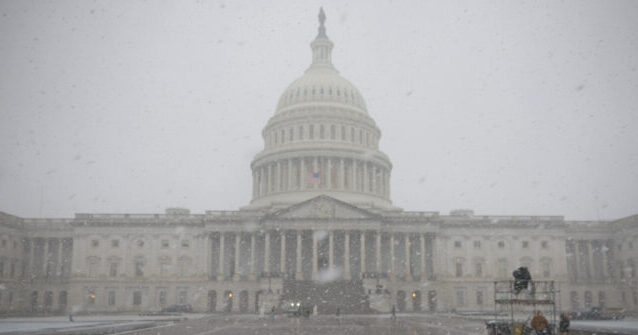Bonus depreciation, introduced in the 2017 Tax Cuts and Jobs Act, was a simple concept: businesses could immediately deduct the full cost of capital investments, rather than depreciating them over years. This was a boon to business investment, encouraging companies to upgrade equipment, expand operations, and modernize infrastructure. It was, in essence, a policy designed to front-load economic growth by making investment cheaper today rather than dragging out deductions over time.
But Washington, in its infinite wisdom, made this provision temporary. It began phasing out in 2023 and, absent congressional action, will disappear entirely by 2027. What happens when businesses suspect a tax benefit might be revived but aren’t sure when? They delay investment. The mere uncertainty over whether Congress will extend bonus depreciation is enough to slow capital spending, as companies hold off on major purchases in the hopes of a better deal down the road.
This is not speculation. Economist Joe Lavorgna recently pointed to a spike in the Economic Policy Uncertainty Index, which has reached its highest level since 2020, largely due to fiscal and tax policy concerns. Businesses don’t like unpredictability. Federal Reserve data shows a sharp slowdown in business equipment production, suggesting firms are already pulling back on capital expenditures. The stock market has noticed, with capital-intensive industries like manufacturing and technology showing weakness.
In a recent note, Lavorgna wrote:
One of the key elements of the 2017 Tax Cut and Jobs Act (TCJA) was a 100% bonus depreciation on capital spending (capex). This provision allowed firms to immediately deduct the full cost of business equipment spending. The intent was to galvanize capex which is a critical input into improving the rate of productivity growth. However, according to recent Fed data, the production of business equipment sharply slowed last quarter, potentially hinting at a faltering in inflation-adjusted equipment spending in the GDP accounts. This is all the reason to extend TJCA as soon as possible, thereby removing business uncertainty and the headwinds to expansion that can accompany that.
Tax uncertainty operates like an invisible tax—one that discourages businesses from investing, hiring, and expanding. If Congress were to make bonus depreciation permanent, businesses would have the clarity they need to make long-term investments. Instead, Washington dithers, leaving executives to play a guessing game about what the tax code will look like a year or two from now.
The Biden administration, for its part, spent years arguing that corporate tax cuts needed to be reversed to fund more government spending. But with Republicans now in control of both Congress and the White House, the path is clear for a pro-growth tax policy reset. The question is whether Congress will act decisively or continue treating business investment like a political football.
The Job Creators Network has rightly warned that small businesses, in particular, can’t afford to wait indefinitely for Washington to provide tax certainty. CEO Alfredo Ortiz recently noted that businesses need clarity now, not a last-minute deal squeezed into an end-of-year spending bill.
If Washington’s goal is to maximize business paralysis, it is succeeding. If the goal is economic growth, restoring bonus depreciation should be a no-brainer.
Breitbart News
Read the full article .


